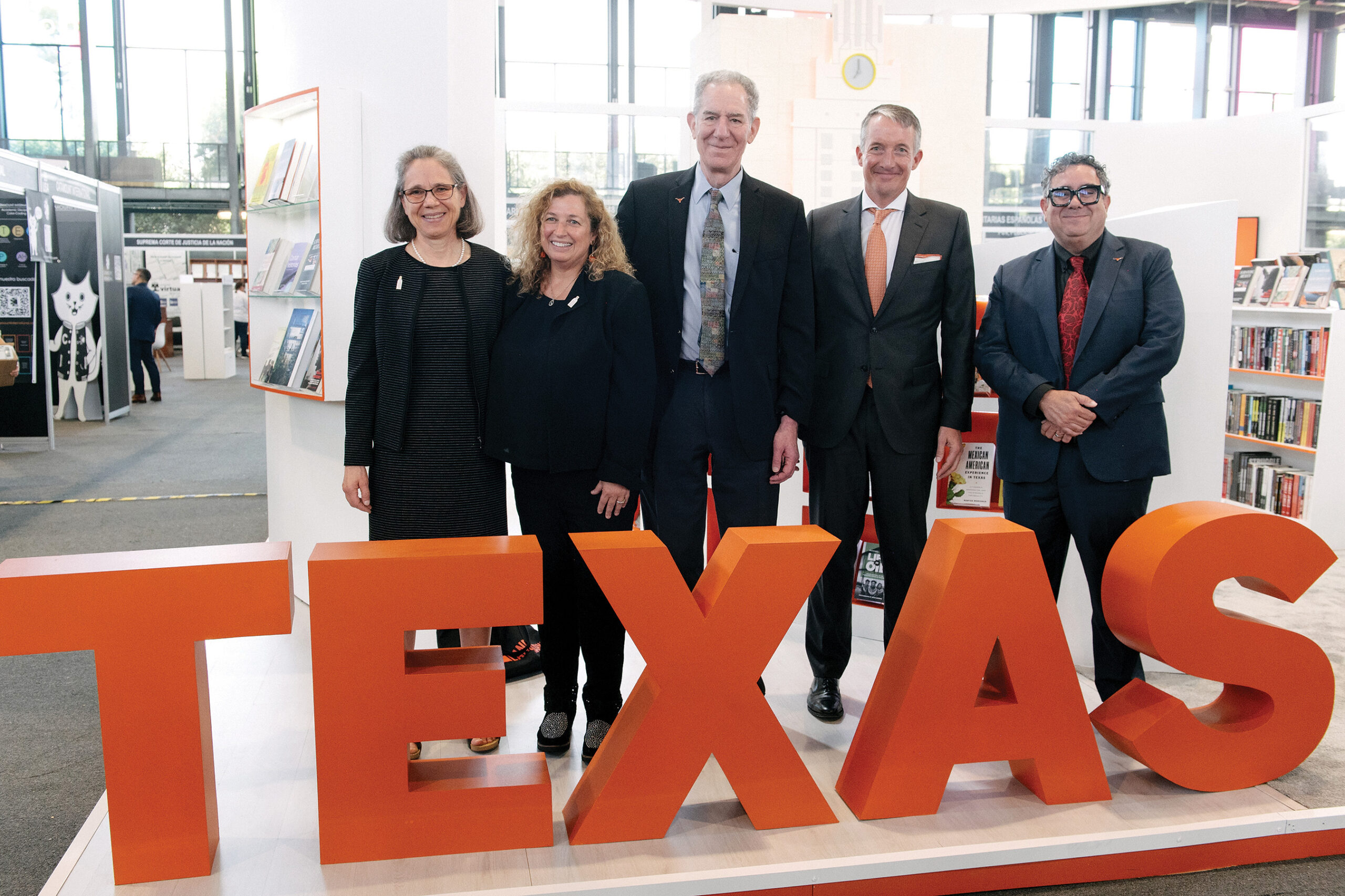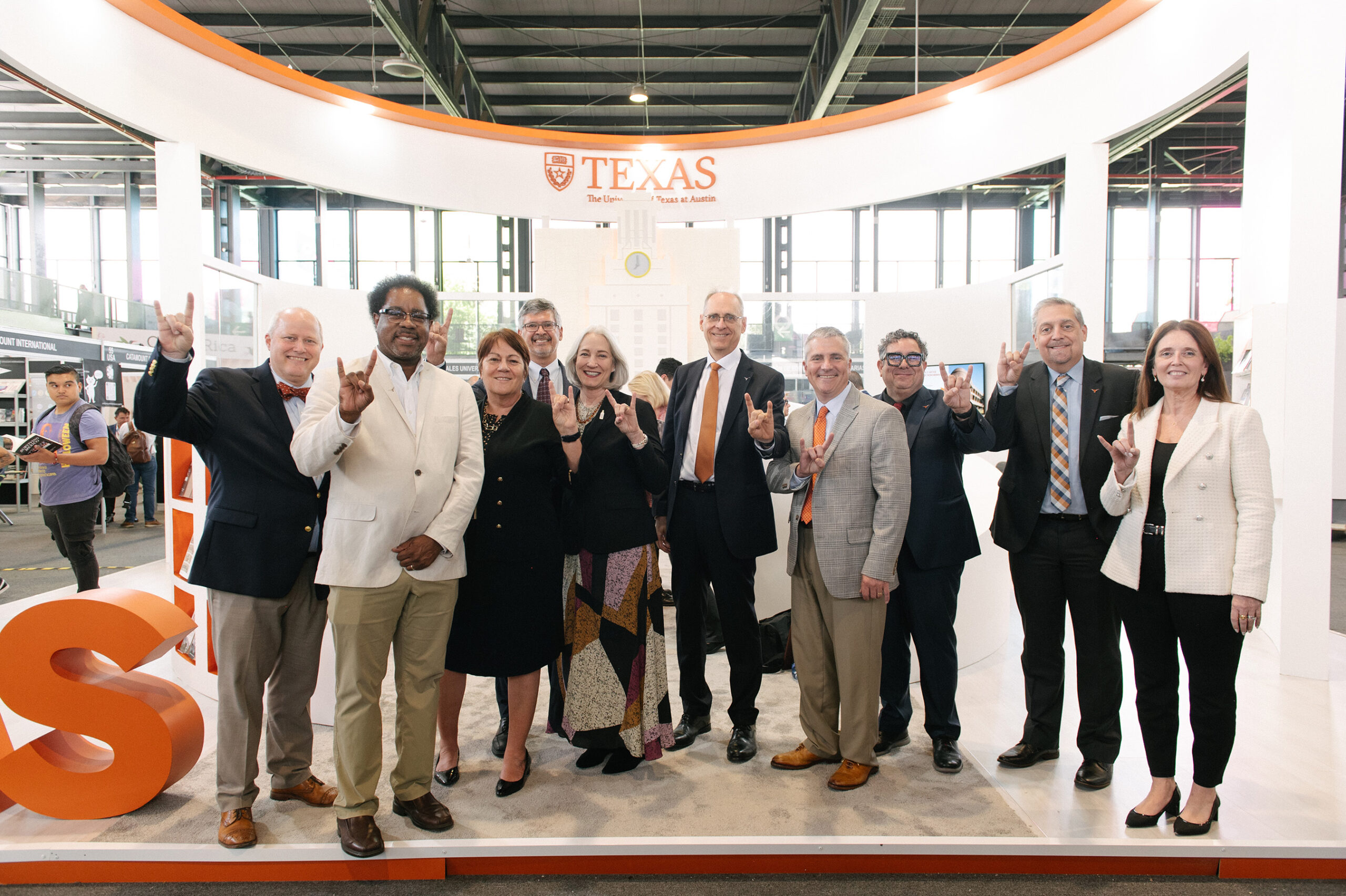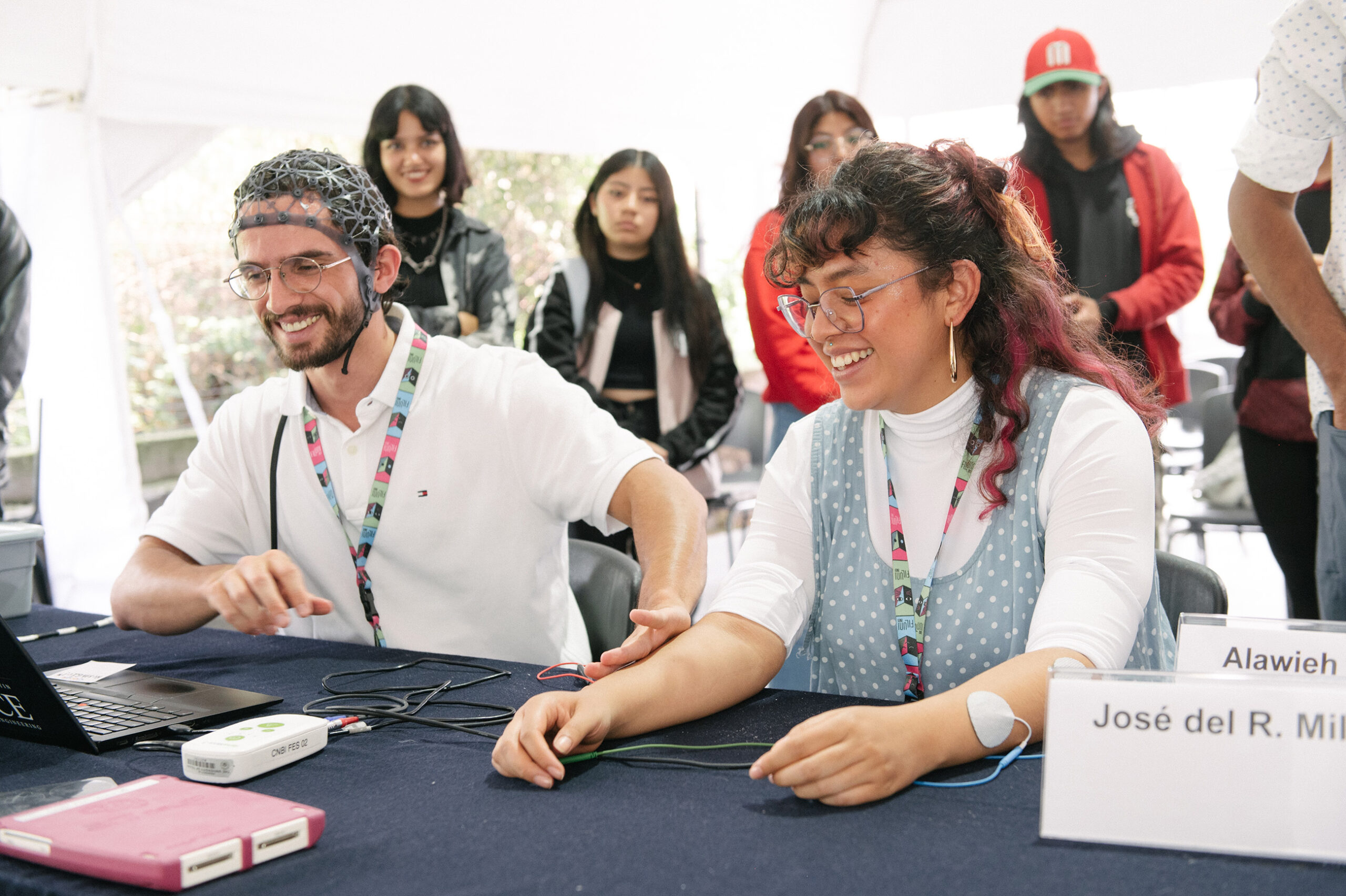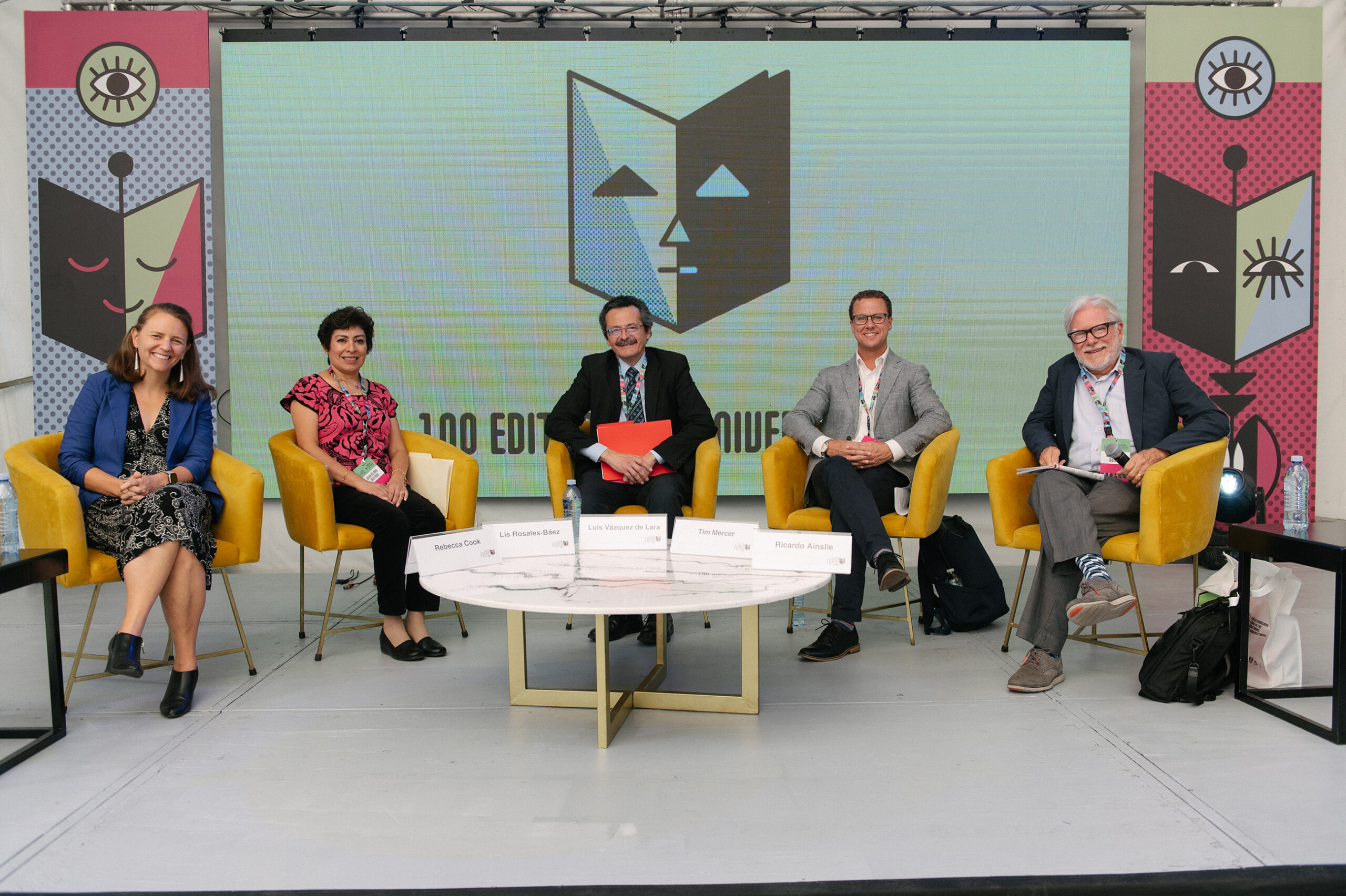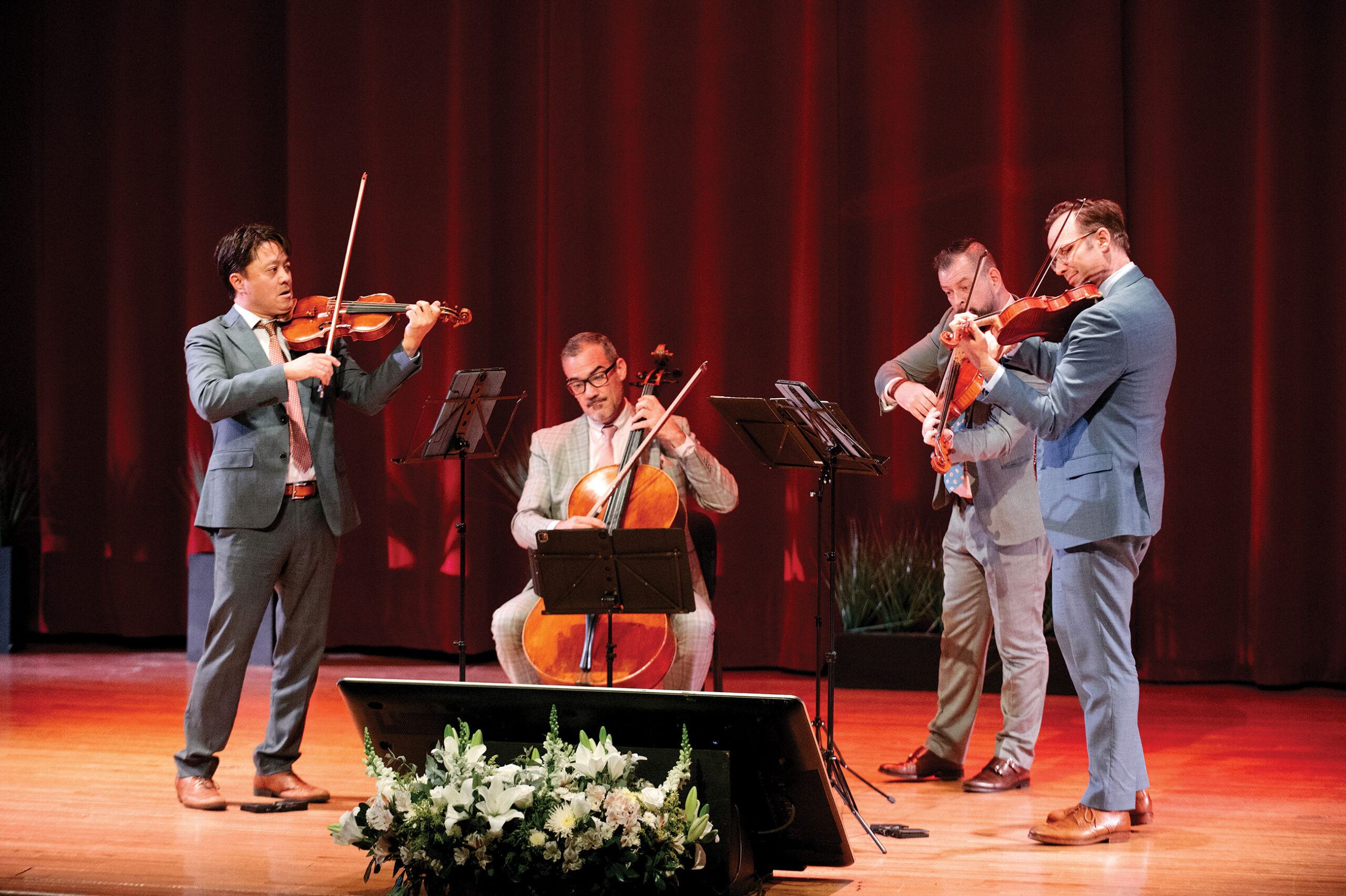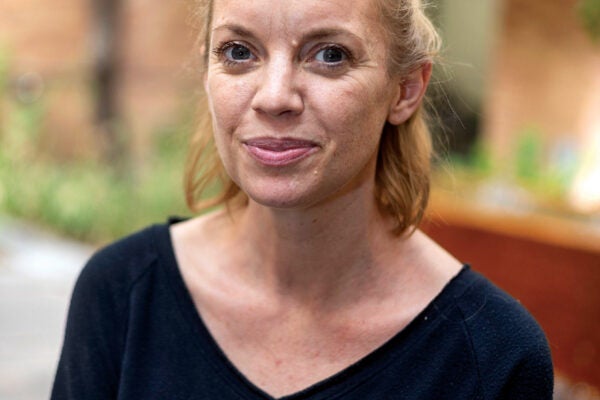Faculty, staff members and students at The University of Texas connect with places and people around the globe. But the relationship with Mexico is special.
“The Forty Acres is home to almost 600 students and scholars from Mexico, and almost 150 students from UT Austin have studied, researched or interned in Mexico in the past academic year,” says Sonia Feigenbaum, senior vice provost for global engagement and chief international officer. More than 3,500 alumni live there, as well. “More than 200 UT Austin faculty members engage in research activity in Mexico, and we have more than 140 joint publications.”
The University further strengthened its ties to Mexico last fall by co-hosting the international book festival Feria Internacional del Libro de las Universitarias y los Universitarios (FILUNI) with its long-term partner Universidad Nacional Autónoma de México (UNAM), located in Mexico City.
“We have a long history with UNAM, 50 years of rich partnership and collaboration,” Feigenbaum says. “In 2021, we established a permanent office, the Mexico Global Gateway, to represent the university in the region, advance research collaborations, foster academic exchanges and connect with our alumni.”
UT has maintained a presence at the book festival since its inaugural event in 2017, but it is the first institution in the United States to co-host the weeklong event. The 2023 festival brought together more than 42,000 people from around the world.
“This is the largest university book fair in Mexico and one of the most important in Latin America that showcases publishing presses,” Feigenbaum says.
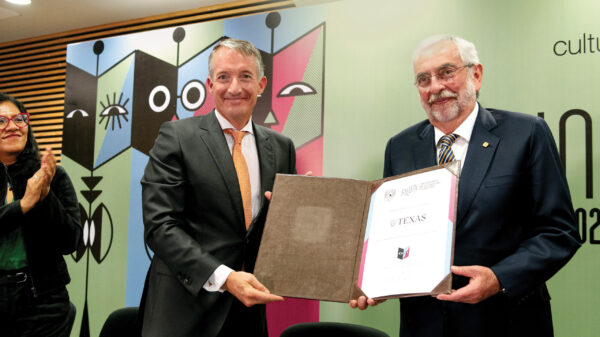
UNAM invited UT to be the guest of honor in February 2020, but plans were delayed because of the COVID-19 pandemic. As international travel resumed, Texas Global assembled a task force and began the yearlong process of strategic planning and coordination.
Feigenbaum says the task force solicited input from colleges, schools and departments across UT, forming a team of nearly 30 faculty and staff members who contributed to the myriad topics the University could showcase at FILUNI. A total of about 200 proposals were received.
The event featured 140 UT participants, including President Jay Hartzell, Provost Sharon Wood, 11 deans, faculty and staff members, graduate students, performers and several Longhorn alumni. Together, they represented 23 colleges, schools and units, and 92 members presented as co-panelists in research symposia, discussions and live podcasts.
UT Press showcased 600 of its titles from its bookstand at the center of the venue, offering more than 1,100 volumes for purchase among the 20,000 available at the festival. Throughout the convention, the University highlighted UT Austin’s 10-year strategic plan, Change Starts Here, with research themes of technology and society, health and well-being, energy and environment, and arts and culture. UT Austin led 54 sessions that explored these concepts.
“We were able to really tap into the strength of our university to highlight our faculty working on critical issues that impact so many people and communities around the world, thus offering very dynamic sessions, as well as showcasing musical performances and exhibitions,” Feigenbaum says.
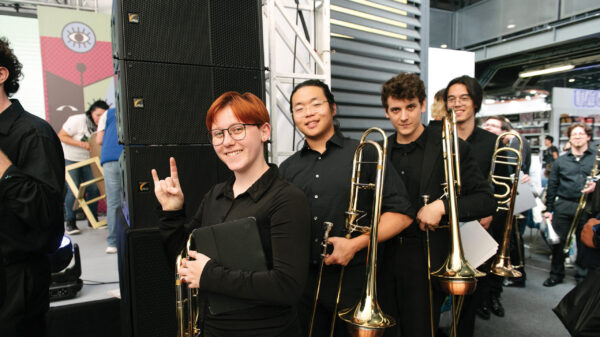
The conference also covered topics such as artificial intelligence and solutions to chronic poverty, bringing together different voices.
“It was an opportunity for our faculty who do not get to work together on campus to discover each other’s research and activities and collaborate,” Feigenbaum says.
Mexico is an essential friend to the state of Texas and a natural place to explore some of the research themes of the University’s strategic plan, Feigenbaum says. It’s crucial to use the expertise of students and faculty who share connections with the country in various academic disciplines, including Indigenous culture and languages.
UT’s libraries and collections hold important materials that demonstrate the University’s ties to Mexico, including holdings in the Benson Latin American Collection, a library devoted to Latin America and Latina/o studies on campus, as well as the Harry Ransom Center.
The Dell Medical School, which sent representatives to FILUNI to speak about health and well-being, in 2022 began the Academic Model Providing Access to Healthcare (AMPATH) program in Puebla to look at global health. AMPATH opens a gateway for conducting research and training for medical professionals.
Texas Global has generated partnerships with institutions across regions in Mexico, creating new opportunities for staff and students to collaborate. FILUNI was yet another big step in advancing the University’s mission by fostering global engagement, research connections and partnerships abroad.
“Texas Global, think of it as this: the organization that drives but that also follows, that collaborates, and celebrates all of the work of our stakeholders across campus and around the world, demonstrating that we are a global institution,” Feigenbaum says. “What starts here changes the world, but we change the world together through collaboration.”

